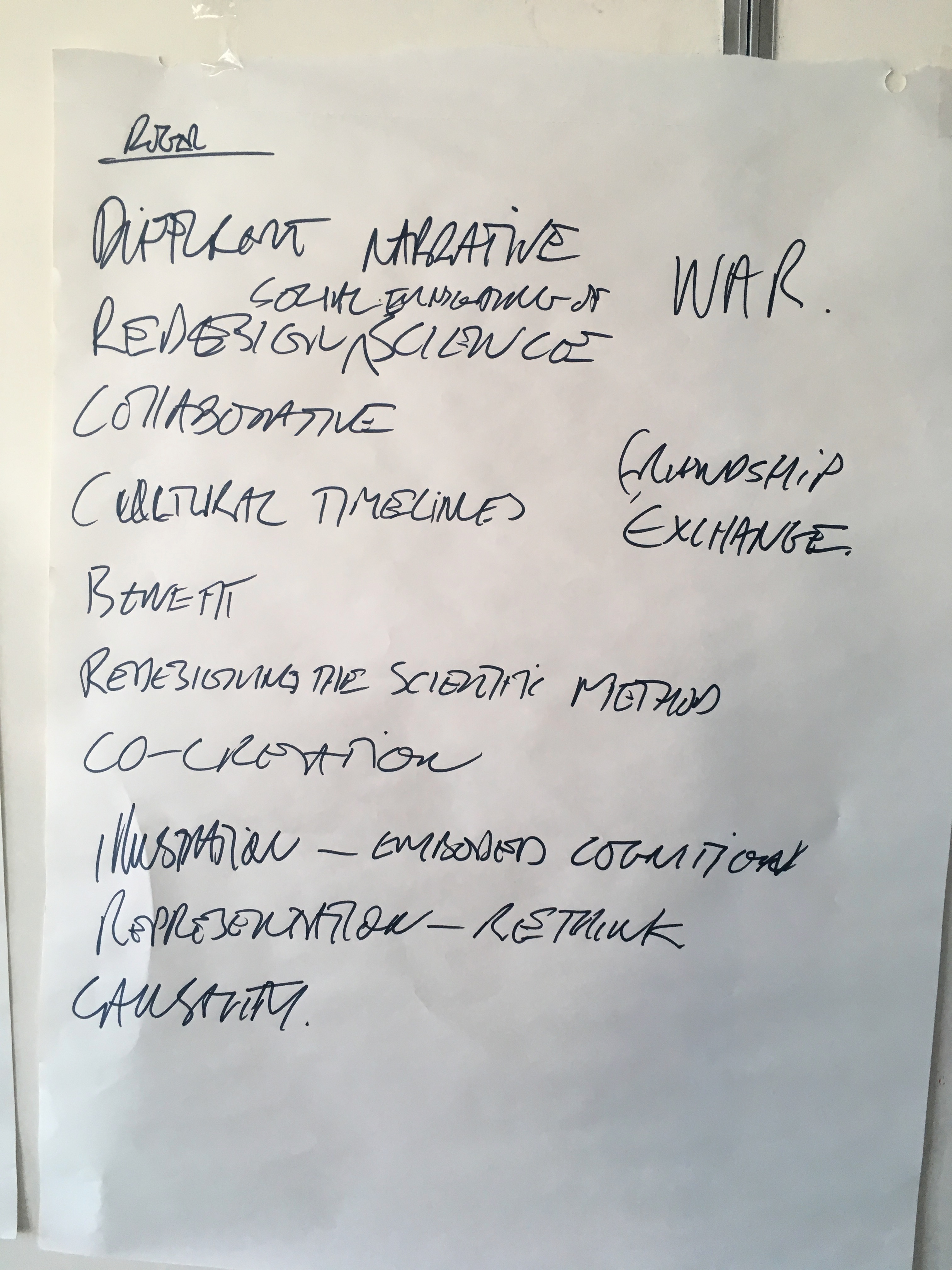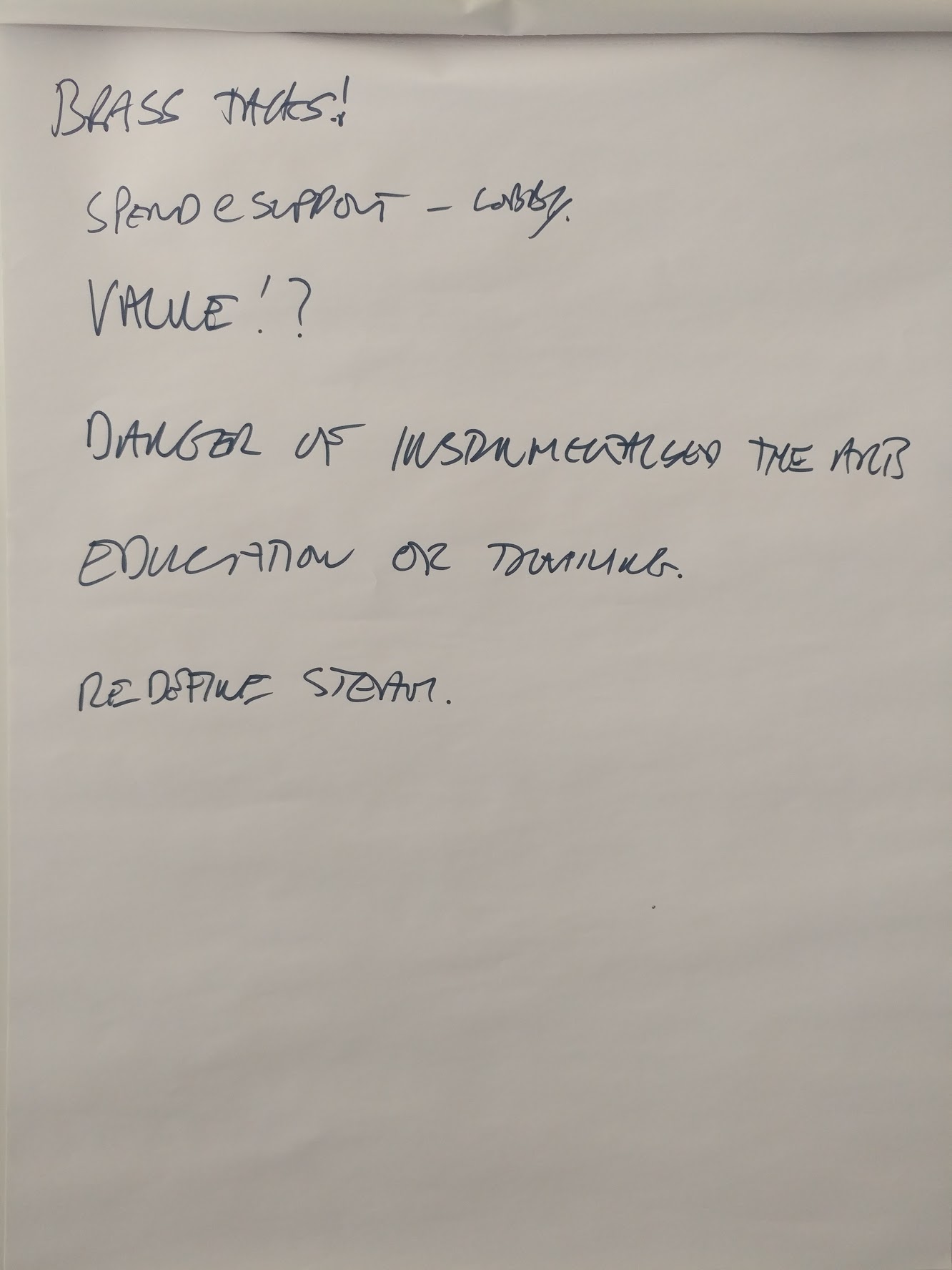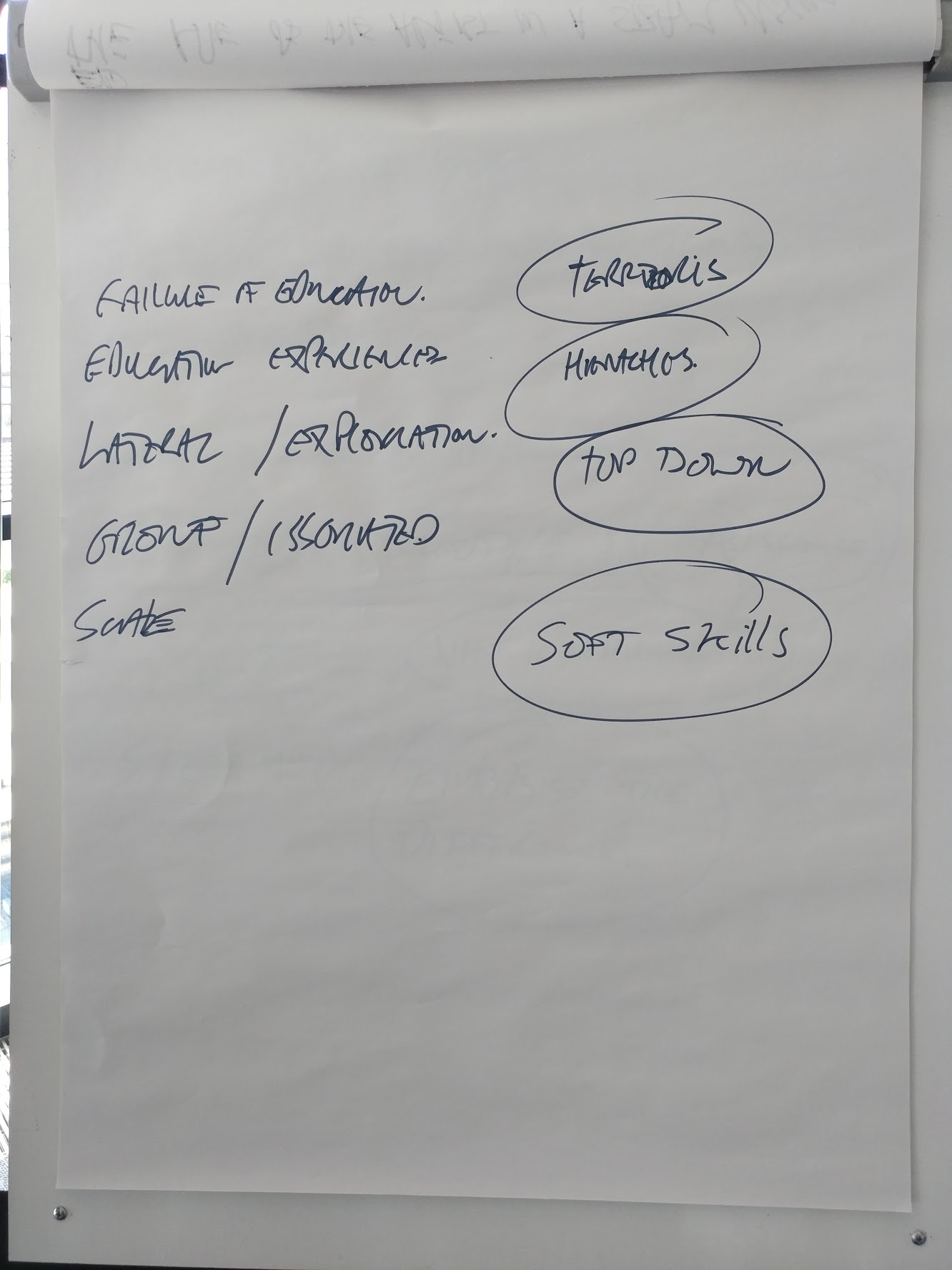Paul Thomas’s edited notes from the International STEAM workshop groups
Art as part of STEAM should be disruptive, un,ill/indisciplinary to deal with embodied knowledge systems. The development of STEAM should not be seen as an opportunistic political and economic system tool but rather as a time for reflections on the current meaning of science and humanity. STEAM should push not only the limits of art but the limits of science and societal expectations.
The potential for research mobility enabled by the arts allows for the expanded studio/lab to lead towards a transdisciplinary studio. The post, post, transdisciplinary studio[1] can then become a site for cohesion, creating intentional uncertainty, situated and distributed knowledge. These studios represent the potential for institutional and soft skilled occupants to explore revising scientific methodologies that embody the transdisciplinary moment.
STEAM should be a site built on embodied cognition of radical innovation that leads to representational curiosity. The addition of Art to STEM is not to facilitate spurious collaborations but to become a vehicle for human interaction, critique and expression.
There needs to be a shift in trust for qualitative assessment methods to re-educate institutions in validating new forms of practice. The gamified potential is employed to revisit fundamental forms of inquiry that leave preconceptions behind to form new bodies of knowledge.
The desire for the inclusivity of art in STEAM can be seen modeled in the mid 90’s with the rise of Media Art. The inclusion of the fine arts was justified with unrealistic expectations in order for art to have access to new and emerging technologies.
Coles, A. (2012). The Transdisciplinary Studio’ Berlin: Sternberg Press.
Documentary data and presentations
Paul Thomas Professor of Fine Art, Director Studio of Transdisciplinary Research, UNSW Sydney
Mike Phillips Professor of Interdisciplinary Arts, i-DAT.org, Plymouth UK
Workshop panel members
Mike Stubbs: Director/CEO of FACT, the Foundation for Art and Creative Technology
Lucia Arias: YP & Learning Manager FACT (Foundation for Art & Creative Technology)
Lucia Arias and Neil Winterburn presentation FACT
Roger Malina: Professor Arts and Technology Distinguished Chair Dallas, USA
Roger Malina STEAM TO STEAM presentation

Laura Beloff: Associate Professor, IT University of Copenhagen
Laura Beloff_STEAM_Presentation
Edward Shanken: Associate Professor, Arts Division, UC Santa Cruz
Edward Shanken STEAM Balance Unbalance 2017 Presentation
Three Groups including the panelists were asked to choose one of the topics.
- Create aims and outcomes for the role of art in developing a global STEAM vision that could act as an agent in the cloud.
- Explore shift needed to take place in art education in order to explore the new realities of the evolving reorganization of practice, research, and knowledge.
- Define the role of education in the age of uncertainty and sustainability through the agency of art, sciences, and humanities. Proposing non-normalising or non-normative standards for judging the success of artistic outcomes distinct from the metrics of the STEM environment.
The groups were led by the moderators and below is the results of this discussion around the three themes.









